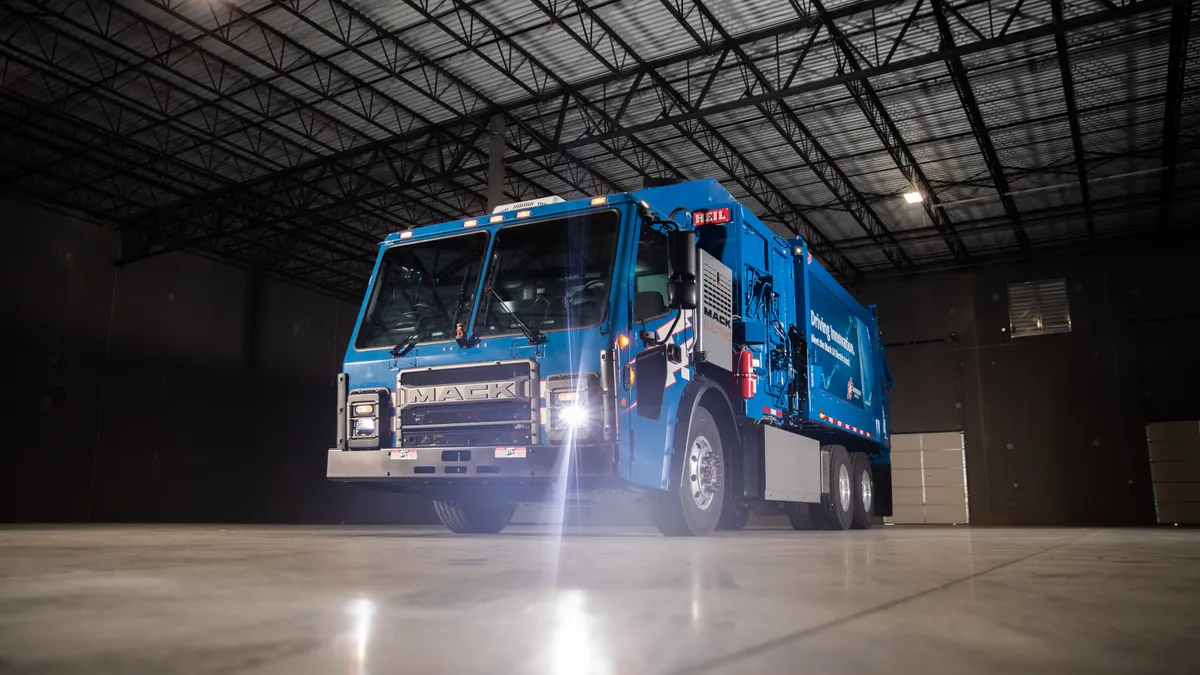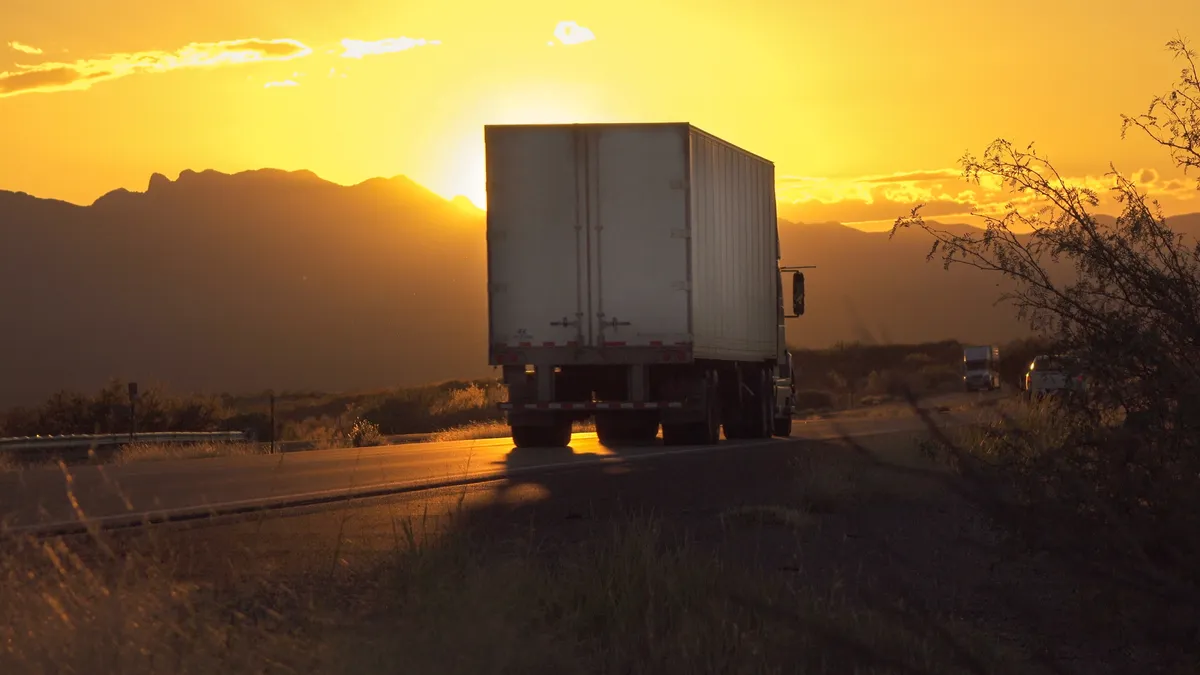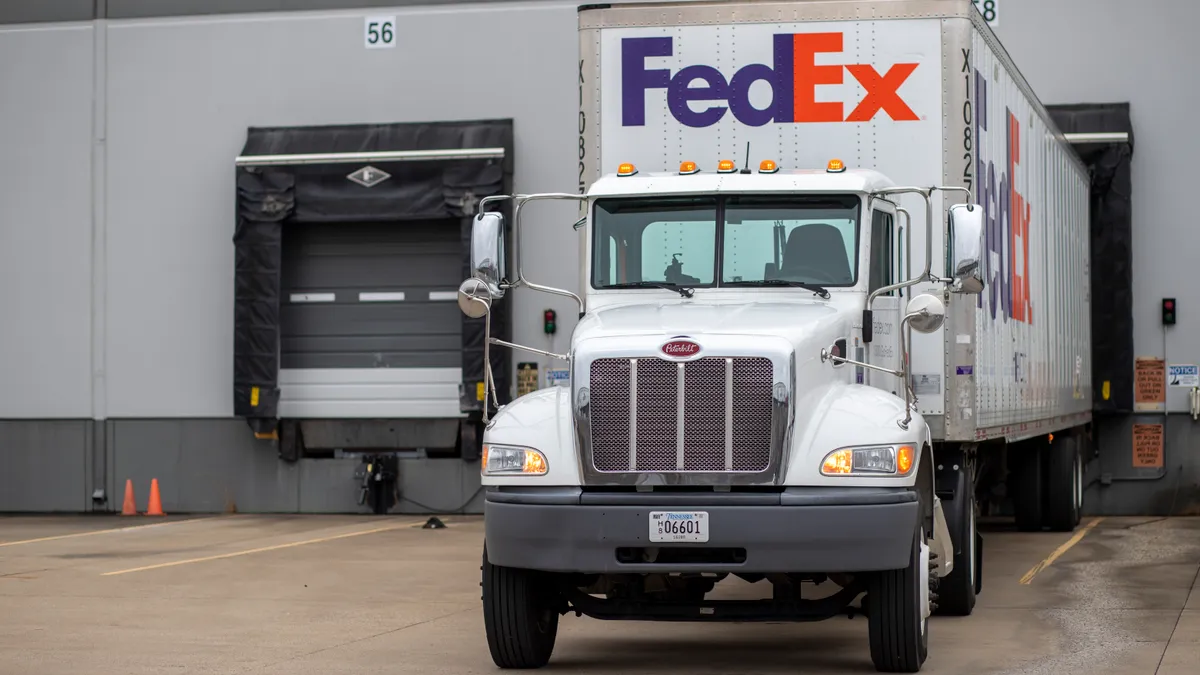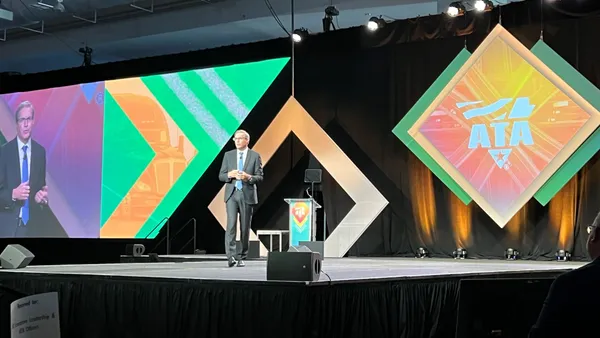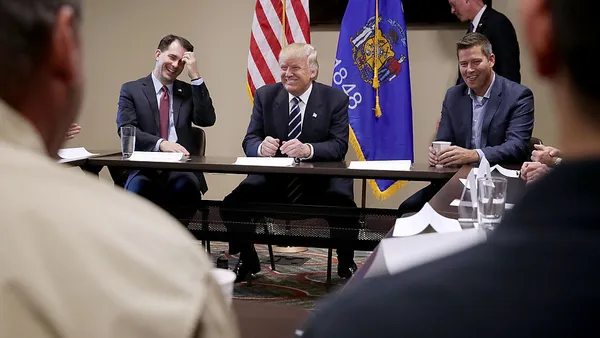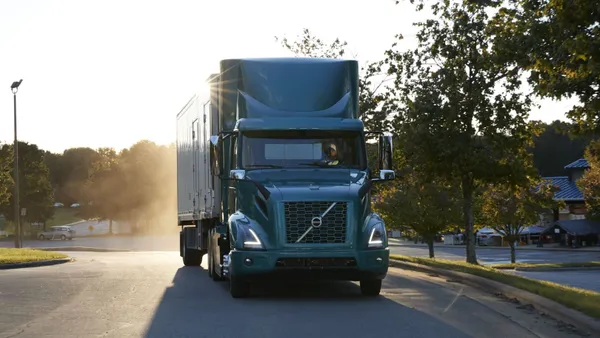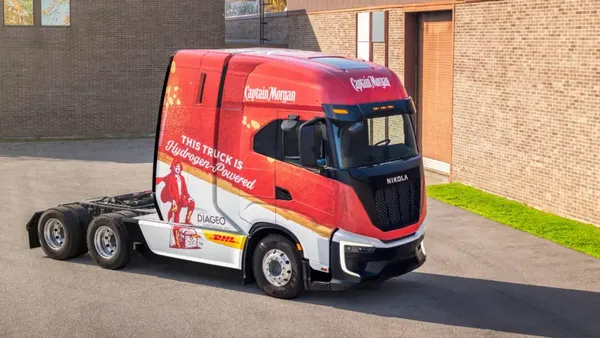Dive Brief:
- Mack Trucks has delivered a pre-production Mack LR Electric model to waste company Republic Services, the OEM's parent company said Wednesday. Mack will start production on the new Class 8 zero-emissions vehicles, denoted by a copper bulldog hood ornament, in early 2021. The LR Electric will be built at Mack's Lehigh Valley Operations facility, where all Class 8 trucks for North America and export are assembled, according to a news release.
- Republic will use the truck, which includes an automated side loader body from Heil, on a residential recycling route in Hickory, North Carolina. The truck's two electric motors can generate a combined output of 536 peak horsepower, with four nickel-manganese-cobalt lithium-ion batteries that can be fully recharged in 90 minutes using a 150-kilowatt system.
- So far, Mack is not disclosing how many initial orders it expects from the industry. “We have seen significant interest from several fleets in the U.S. and Canada as early adopters wanting to participate," said Jonathan Randall, senior vice president of North American sales and commercial operations, during a press event.
Dive Insight:
Mack's delivery of new trucks is a common occurrence, as the company has been making refuse vehicles for more than a century — but its advancement of this electric model comes at a notable time in the industry's evolution.
Public and private sector demand for electric collection vehicles has risen significantly in recent years, driven in large part by regulatory and market pressures to reduce greenhouse gas emissions that contribute to climate change.
While electric vehicles still account for a fraction of the estimated 7,000 trucks purchased by the industry each year, that is expected to change as multiple new players move to meet the moment. BYD, Lion Electric and Peterbilt are among other notable names testing or deploying their own collection models in multiple states.
Newcomer Nikola announced Republic ordered 2,500 of its trucks in August, a move one analyst said "signals a view that the future of refuse trucks is electric" as it remains the industry's largest order to date. Republic also recently announced plans to become an investor and strategic partner for Romeo Power, a company focused on technology for electric vehicle batteries.
Last month, Nikola founder and executive chairman Trevor Milton resigned amid investor pressure and questions about the company's ability to deliver. Following the Mack event, Republic reiterated the company "will continue to work with Nikola ... and our other suppliers to develop electric recycling and waste collection vehicles." Spokesperson Jeff Davis also said the company has "reserved 10 additional Mack LRs to be delivered next year."
The event surrounding Mack's delivery included multiple signs the OEM can be expected to play a large role in this area. Republic CEO Don Slager appeared in a video stating the vehicle represents "a big leap forward" for Mack. The manufacturer meanwhile repeatedly emphasized its "dominant" status in the sector and Randall added "our position is secure within this industry." Mack also highlighted how the LR model, launched in 2015, was designed specifically with the ergonomic and safety needs of collection workers in mind.
“Why change a good thing? The base of the truck is really the LR that you would order with the diesel or the CNG powertrain," said Randall, when asked how Mack differentiates its electric truck from others.
Some of the factors Republic will assess as it considers buying more electric trucks from Mack include safety performance and range capabilities for local routes that can average around 10 hours, according to Republic's Mid-Atlantic area president, Shane Walker.
New York's Department of Sanitation will test its Mack LR Electric on collection routes in Brooklyn. The department has reported benefits, such as less noise, but anticipates that building out charging infrastructure could be challenging.
Tuesday, the agency confirmed it has not yet ordered additional Mack LR Electric models but could do so in the future. In February, a deputy commissioner said the department could possibly order up to 25 electric vehicles in the fiscal year 2022 cycle and eventually scale up to hundreds per year. The city has since experienced pandemic-driven budget cuts that could affect those plans.



